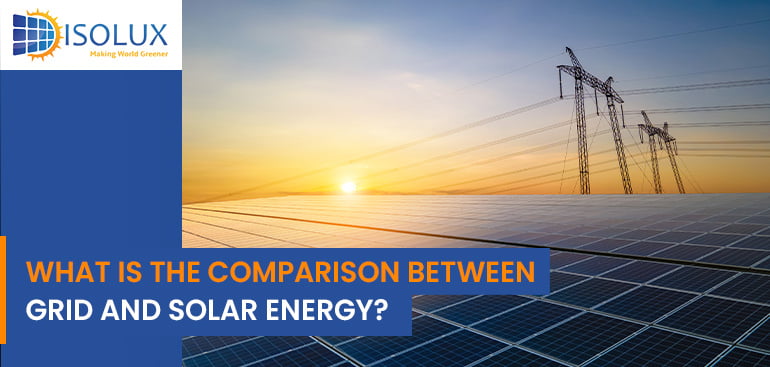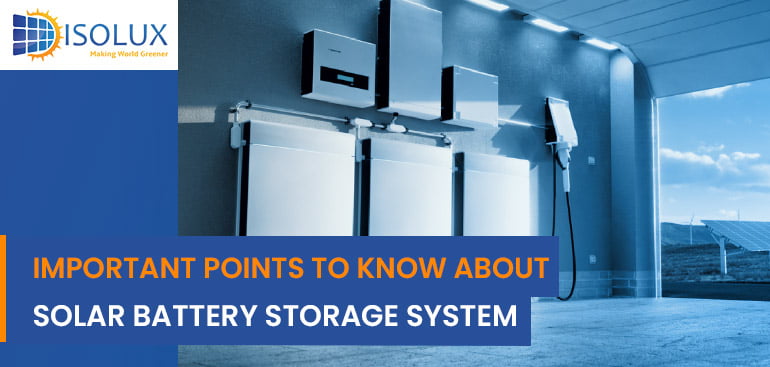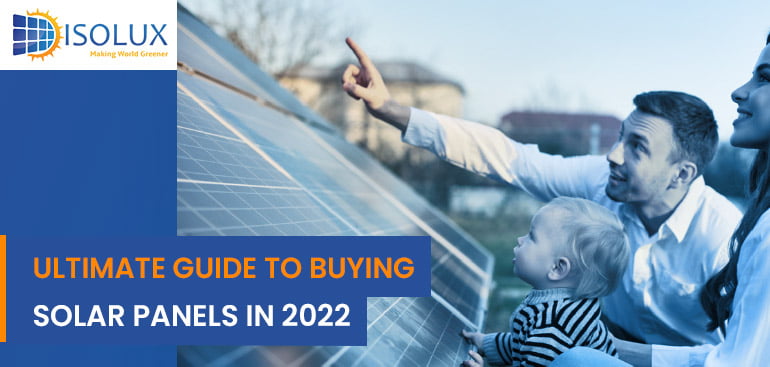Energy consumption is a crucial aspect of our daily lives, and the sources we rely on to power our homes and businesses have a significant impact on the environment. Solar energy and traditional grid power are two of the most common sources of energy. In this article, we will compare these two forms of energy, examining their benefits, drawbacks, and costs.
Solar Energy vs. Grid Energy
Solar energy is produced by converting sunlight into electricity using photovoltaic (PV) cells. The PV cells are made of a material that generates a flow of electrons when exposed to light. This flow of electrons creates a direct current (DC) which is then converted into an alternating current (AC) that can be used to power appliances and devices. The AC current is then sent to an inverter that converts it into a form that can be used in homes and businesses.
Grid energy, on the other hand, is energy that is produced by a central power station and then distributed to homes and businesses through a network of power lines. This energy is produced from a variety of sources, including coal, natural gas, and nuclear power.
Advantages of Solar Energy
Renewable Energy Source: Solar energy is a renewable energy source, meaning that it will never run out. It is also environmentally friendly, producing no emissions or harmful waste products.
Cost Savings: Over time, solar energy can be more cost-effective than traditional grid power. The cost of solar panels has decreased significantly in recent years, and the cost of installation has also decreased, making it a more accessible option for homeowners and businesses.
Increased Energy Independence: With solar energy, you have the ability to generate your own electricity, reducing your dependence on traditional grid power. This increased independence can provide peace of mind in the event of power outages or natural disasters.
Increased Property Value: Properties with solar panels installed have been shown to have increased property value, making it a smart investment for homeowners.
Disadvantages of Solar Energy
Initial Cost: Although the cost of solar panels has decreased, the initial investment for installation can still be substantial. Homeowners and businesses must carefully consider their budgets when deciding whether to invest in solar energy.
Limited Availability: The availability of solar energy is limited by the amount of sunlight received in a given location. Areas with limited sunlight may not be able to generate enough energy to meet their needs.
Maintenance Requirements: Solar panels require regular maintenance to keep them functioning efficiently, and the cost of maintenance should also be considered when deciding whether to invest in solar energy.
Advantages of Traditional Grid Power
Wide Availability: Traditional grid power is available in almost every location, making it a reliable option for those who do not live in areas with high levels of sunlight.
No Maintenance Requirements: Traditional grid power does not require maintenance, making it a convenient option for those who do not want to worry about the upkeep of their energy source.
No Initial Cost: There is no initial investment required to access traditional grid power, making it an affordable option for those on a tight budget.
Disadvantages of Traditional Grid Power
Non-Renewable Energy Source: Traditional grid power is generated from non-renewable sources such as coal, natural gas, and oil. These sources are finite and will eventually run out, leading to increased dependence on foreign oil and increased environmental degradation.
Cost Inefficiencies: The cost of traditional grid power can fluctuate, and it is subject to seasonal price spikes and supply disruptions. This can result in significant cost inefficiencies for consumers.
Environmental Impact: The generation of traditional grid power produces emissions and waste products that are harmful to the environment.
Cost Comparison
The cost of solar energy and traditional grid power can vary greatly depending on the location, the size of the solar panel installation, and other factors. In general, the initial cost of installation for solar energy is higher than the cost of connecting to traditional grid power. However, the long-term cost savings of solar energy can make it a more cost-effective option in the long run.
Conclusion
Solar energy is a great alternative to grid energy, but it is important to weigh the pros and cons before making a decision. Solar energy is cost-effective, environmentally friendly, and reliable, but it is dependent on weather conditions. Grid energy is always available, but it is expensive and has a negative impact on the environment. Before making a decision, it is important to consider your energy needs, budget, and environmental impact.
To Get a Free Quote for residential and commercial solar panel systems contact Isolux solar.




